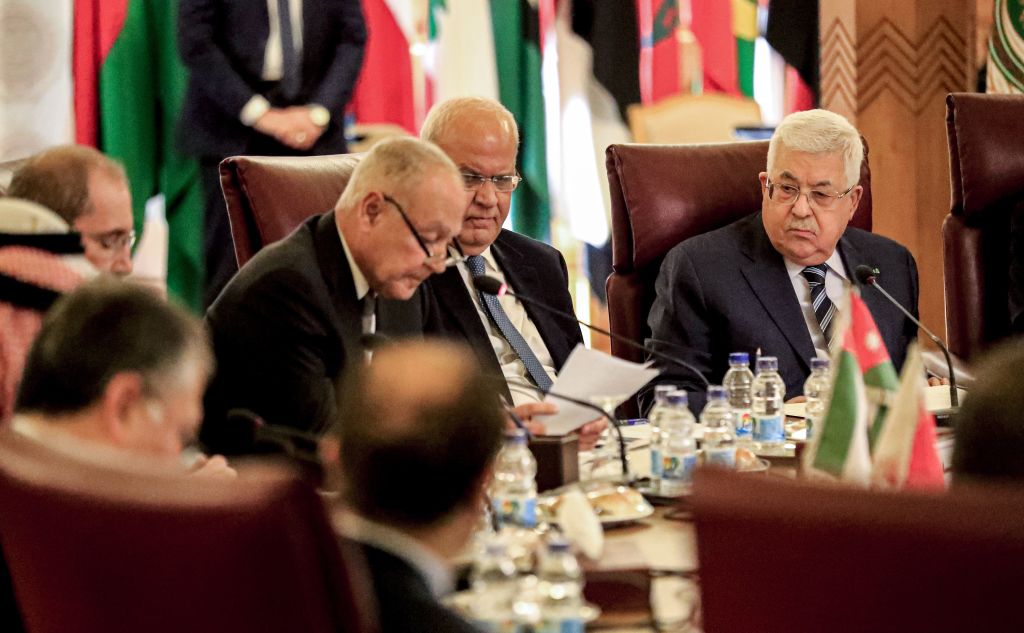
Saeb Erekat, who died on Nov. 10 from complications of COVID-19, spent most of his life as the face of Palestinian side in the Mideast peace process, which preceded him in death.
When the peace process was still alive—vibrantly in the 1990s but, after the Palestinian uprising or “Intifada” of 2000 to 2005, mostly in name—Erekat was the chief negotiator arguing for ending Israel’s military occupation of the West Bank to allow a state named Palestine. In interview after interview, he articulated the case for optimism and good faith as ubiquitously and relentlessly as Benjamin Netanyahu did the case for Israeli skepticism and the status quo. The latter won out.
“For over a quarter century Saeb Erekat tested the proposition that a conquered, oppressed people can win its freedom through appeals to reason and international law. It was a hopeful idea, but, alas, not a realistic one,” said Nathan Thrall, author of The Only Language They Understand, which puts the conflict in the terms—coercion and force—dominated by Israel.
If any prospect remained for a negotiated two-state solution, Erekat’s death would leave a substantial void. But polls show neither Palestinians nor Israelis retain much hope for talks. And President Donald Trump, after campaigning in 2016 on the promise of producing “the deal of the century,” once in office abandoned Washington’s historic role as mediator and sided openly with Israel, pulling down the painstakingly established architecture of a final settlement by moving the U.S. embassy to Jerusalem, which in a final peace plan would have been shared by both states.
Today, hope for a negotiated end to the conflict resides mostly in the outside world. A decade ago I spent ten days touring foreign capitals with Palestinian Authority President Mahmoud Abbas, known as Abu Mazen, when there was an ardent if vague hope that a state might be produced by diplomacy, starting with a UN vote. On the private jet Erekat had the seat opposite Abbas, and he fancied himself a prospective successor. At his office in the ancient city of Jericho, Erekat boasted of besting Hamas—the Islamist militant rival of his own, secular party, Fatah—in local elections.
But I had come to the office that day in 2011 because Al Jazeera had published leaked documents from closed-door negotiations with the Israelis, which made plain just how weak a hand the Palestinians had to play. Erekat was resigning as chief of the Palestinian Authority’s Negotiations Affairs Department over the leak (temporarily, it would turn out). Then, he made the task ahead sound simple. “Negotiations are over,” he told me. “It’s time for decisions.” But as he spoke, the central conflict in the region was shifting from the Palestinian dilemma to confronting Iran.
The Jerusalem hospital where he died is not far from Erekat’s birthplace, Abu Dis, the dusty onetime village that Israeli negotiators persistently suggested as the fallback capital for a Palestinian state, instead of Jerusalem. It stands beyond a towering concrete wall built, by Israel, during the Second Intifada.
More Must-Reads from TIME
- Why Biden Dropped Out
- Ukraine’s Plan to Survive Trump
- The Rise of a New Kind of Parenting Guru
- The Chaos and Commotion of the RNC in Photos
- Why We All Have a Stake in Twisters’ Success
- 8 Eating Habits That Actually Improve Your Sleep
- Welcome to the Noah Lyles Olympics
- Get Our Paris Olympics Newsletter in Your Inbox
Contact us at letters@time.com